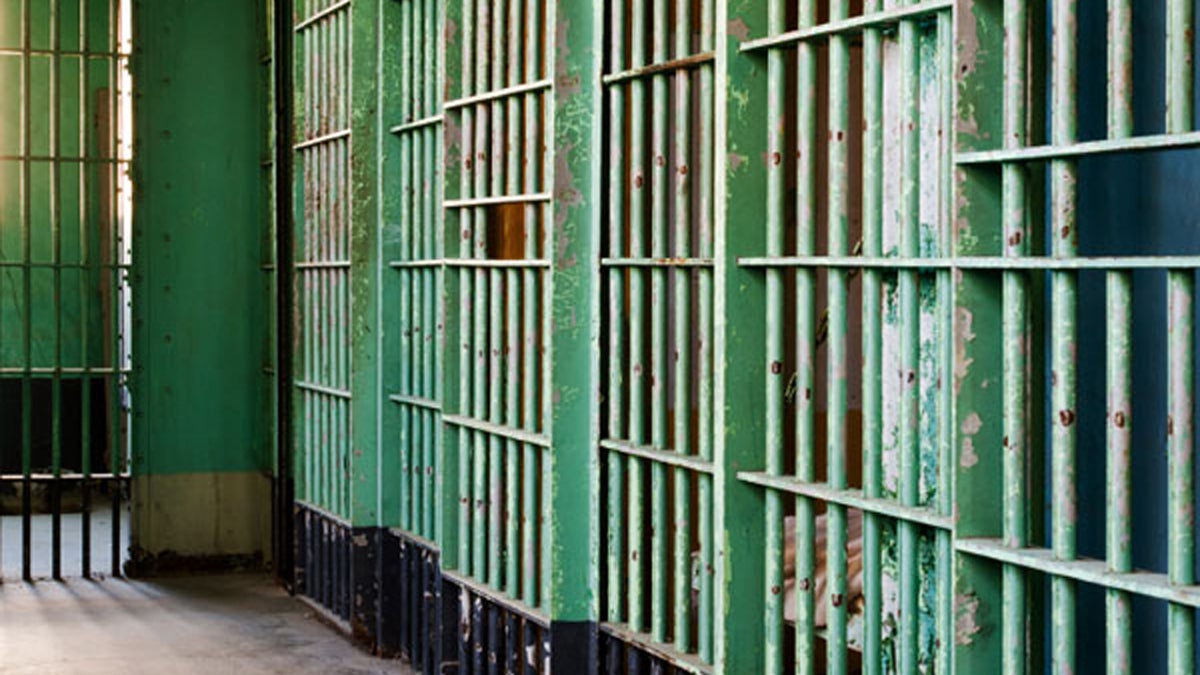NJ bill would allow ‘Medical Parole’ for inmates with incapacitating illnesses
Listen
(Image via NJ Spotlight)
Legislation’s sponsor estimates program could save state $5 million to $9 million annually.
Inmates with illnesses that have left them incapacitated could be released on “medical parole” if Gov. Chris Christie signs a bill recently passed by the Legislature.
Some inmates who are terminally ill are already eligible for the same “medical parole,” which isn’t and still would not be available to prisoners who committed or attempted violent crimes.
Bill sponsors cited the potential financial benefit to the state. Assemblyman Gary S. Schaer (D-Bergen and Passaic) said the sickest inmates in the prison system cost the state roughly $100,000 each per year.
An estimated 90 prisoners could be released under the program, saving the state state anywhere from $5 million to $9 million per year, Schaer said. That’s because the state would still pay all of the medical costs for prisoners, while the overall costs would decrease and at least half of the remaining cost burden would shift to the federal Medicaid program.
“They are the sickest of the sick,” Schaer said during a hearing on the bill. “They are in wheelchairs, they are in hospital beds, they are unable to get around.”
The Assembly passed the bill 47-29, while the Senate passed it 22-10. The vote was largely along party lines, with Democrats supporting it and Republicans against it. However, two Republican Assembly members – Ronald S. Dancer (R-Burlington, Middlesex, Monmouth, and Ocean) and Declan J. O’Scanlon Jr. (R-Monmouth) – and two Republican senators – Christopher Bateman (R-Hunterdon, Mercer, Middlesex, and Somerset) and Jennifer Beck (R-Monmouth) – voted for it.
Republican opponents said that the measure doesn’t give victims of the prisoners’ crimes enough notice of the process and enough say in determining whether the prisoner is released.
In addition, they said that the measure potentially weakens the state’s ability to punish prisoners, could open the door to additional costs to local government, and doesn’t give the New Jersey State Parole Board enough flexibility to determine whether ailing prisoners are released.
Supporters noted that crime victims would be able to submit statements to the parole board . They noted that only prisoners who require 24-hour medical care could be released, that local governments are unlikely to face additional costs, and that the rules governing parole board decisions would be similar to those in other cases.
Under the measure, seriously ill prisoners would be required to petition to the state for their release. If their doctor found that they were permanently incapacitated, a parole board panel would then determine whether they’re eligible for medical parole. As a condition for parole, they would be required to make housing and medical arrangements before they’re released, Schaer noted.
Schaer said that the current program providing medical parole to terminally ill inmates is “largely a failure,” with strict requirements that patients have a prognosis of less than six months to live — resulting in only three ailing prisoners being released in the last four years.
Assembly Republicans raised concerns that major criminals – such as those who committed Bernie Madoff-like financial misdeeds or who committed violent acts that fall short of the crimes explicitly barred from eligibility under the bill — could be released.
Schaer responded that the bill gives parole board members discretion in determining whether prisoners meet the bill’s criteria.
“There is no one in this room who wants their name affixed to a bill which is going to release violent criminals capable of doing another crime. We wouldn’t do it because we have brains in our heads and we have 220,000 people … who would vote us out of office,” Schaer said. “Who wants an idiot as a legislator, right?”
The bill explicitly bars from medical parole those who were convicted of committing or attempting murder, rape, arson, robbery, kidnapping, or endangering the welfare of a child, or who were convicted of committing or attempting to inflict serious bodily injury or using or attempting to use a deadly weapon during a theft.
Schaer said legislators have a “proactive responsibility” to save taxpayers $100,000 per prisoner annually. He based the estimated savings on the $55,000 that the state currently spends per prisoner, and the fact that healthcare is most expensive for those with the most serious illnesses.
Alex Shalom, senior attorney for the American Civil Liberties Union of New Jersey, noted that the rate of older prisoners who commit crimes after being released is close to zero percent.
State Sen. James W. Holzapfel (R-Ocean), who opposes the bill, said heis concerned that the program could be abused, with prisoners with chronic but not incapacitating illnesses taking advantage of it.
“A number of them are going to say, ‘I have bad diabetes, I have cardiac issues,’ ” said Holzapfel, a sponsor of the original law affecting terminally ill inmates.
Holzapfel objected to language that the board “shall” grant medical parole to prisoners who meet the bill’s criteria, rather than giving them the option to approve the ailing prisoner’s release.
Senate sponsor Peter J. Barnes III (D-Middlesex) said the parole board is well positioned to make decisions about whether prisoners meet the criteria. His father previously served as the board chairman.
Barnes said that despite the Republican opposition, he’s hopeful that Christie will sign the measure.
“I think the governor will keep an open mind on the bill,” he said.
WHYY is your source for fact-based, in-depth journalism and information. As a nonprofit organization, we rely on financial support from readers like you. Please give today.

